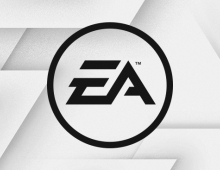
Electronic Arts Releases Tool That Disables SecuROM Protection
Electronic Arts officially released tool that allows users to remove the the SecuRom digital rights management deployed on several of the company's games.
Certain EA PC games with SecuROM digital rights management technology allow users to concurrently "authorize" up to five computers at the same time to play the games. The 'EA De-Authorization Tools' allows users to disable this machine authorization limit and play the game on any authorized computer they choose.
Once downloaded, the SecuROM de-authorization management tool will search your drives for EA games infested with the online DRM system, and help you download their respective individual de-activation tools.
"We recognize that there are many reasons why a gamer might want more flexibility and control over which machines are authorized to play their games. As part of EA?s ongoing commitment to delivering more transparency and choice to gamers, we have created these tools to help gamers mange their authorizations. These new tools can be used by gamers to easily determine which games are authorized on which machines. And if they want to de-authorize one machine in favor of another, these tools give them the ability to do so," reads EA's announcement.
There are two types of EA De-Authorization Tools available to help you manage your authorizations: the EA De-Authorization Management Tool and the Game-Specific De-Authorization Tools.
EA's move comes after the global negative publicity that SecuROM attracted. According to reports, the protection found in popular game titles inlcuding "The Sims" and "Spore" could cause damages to the installed PC and also would not even allow users to play the games they had legaly bought.
Last November, two suits were filled with the U.S. District Court for the Northern District of California against Electronics Arts, targeting the company's use of the SecuROM digital rights management (DRM) technology.
The first class action concerns EA's "Spore Creature Free Trial Edition" game. The trial and free for download version of the game "secretly" installs a DRM software program (Sony DADC 's SecuROM) on the computers of all the persons who downloaded the game. According to the class action, consumers were not informed of the existence of the DRM software in the trail version of the game they download and once it had been installed, it could not be completely uninstalled unless consumers formatted their PC.
The second class concerned the software being installed with The Sims 2: Bon Voyage expansion pack, released a year ago. In the latter case, the person claimed problems with their PC arose after installing the expansion. These included disruptions of antivirus programs and firewalls, software conflicts and registry corruption, according to the suit.
Once downloaded, the SecuROM de-authorization management tool will search your drives for EA games infested with the online DRM system, and help you download their respective individual de-activation tools.
"We recognize that there are many reasons why a gamer might want more flexibility and control over which machines are authorized to play their games. As part of EA?s ongoing commitment to delivering more transparency and choice to gamers, we have created these tools to help gamers mange their authorizations. These new tools can be used by gamers to easily determine which games are authorized on which machines. And if they want to de-authorize one machine in favor of another, these tools give them the ability to do so," reads EA's announcement.
There are two types of EA De-Authorization Tools available to help you manage your authorizations: the EA De-Authorization Management Tool and the Game-Specific De-Authorization Tools.
EA's move comes after the global negative publicity that SecuROM attracted. According to reports, the protection found in popular game titles inlcuding "The Sims" and "Spore" could cause damages to the installed PC and also would not even allow users to play the games they had legaly bought.
Last November, two suits were filled with the U.S. District Court for the Northern District of California against Electronics Arts, targeting the company's use of the SecuROM digital rights management (DRM) technology.
The first class action concerns EA's "Spore Creature Free Trial Edition" game. The trial and free for download version of the game "secretly" installs a DRM software program (Sony DADC 's SecuROM) on the computers of all the persons who downloaded the game. According to the class action, consumers were not informed of the existence of the DRM software in the trail version of the game they download and once it had been installed, it could not be completely uninstalled unless consumers formatted their PC.
The second class concerned the software being installed with The Sims 2: Bon Voyage expansion pack, released a year ago. In the latter case, the person claimed problems with their PC arose after installing the expansion. These included disruptions of antivirus programs and firewalls, software conflicts and registry corruption, according to the suit.





















